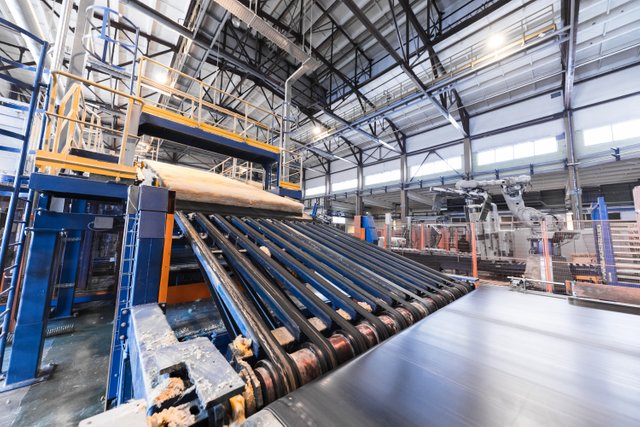How to Maintain Your Conveyor Belts for Longer Life

Conveyor belts are the backbone of many industrial processes and are essential for the efficient flow of materials and goods. Regular maintenance is important to ensure your conveyor belts continue to function and depend on them for a long time. With proper maintenance, you can extend the life of your conveyor belt, reduce downtime, and reduce the need for costly repairs. In this article, we review best practices for conveyor belt maintenance, as well as ways that a reputable conveyor system supplier and conveyor belt supplier can help.
Regular Inspections
Conducting routine inspections is a crucial part of conveyor belt maintenance. During these examinations, it’s important to look for wear-and-tear indicators like edges, cracks, or strange noises. Early detection of such issues enables you to take action before they become more serious issues. When conducting an inspection, a reliable conveyor belt supplier can advise you on what to check for and provide new parts or belts as needed.Proper Tensioning and Alignment
Proper tension and alignment maintenance is essential to the longevity of your conveyor belts. If the belt is too tight the belt and other components may experience excessive wear. Conversely, a belt that is too loose runs the risk of slipping, which can cause damage and inefficient operation. Check tension and alignment regularly and make any necessary adjustments. Working with a trusted conveyor system provider ensures that the systems and belts you get are made for simple changes, helping you maintain peak performance.Lubrication and Cleaning
Appropriate lubrication is crucial for the extended lifespan and reduced wear and tear of your conveyor belts and rollers. As instructed by the manufacturer, make sure all moving parts are appropriately lubricated. Additionally, it’s critical to keep your conveyor belts clean to prevent dirt buildup, which can result in damage or inefficient performance. To keep your belts in optimal condition, a reliable conveyor belt supplier can recommend the best cleaning techniques and materials.Timely Belt Replacement
No matter how well you maintain your conveyor belts, they will eventually need to be replaced. Knowing when to replace a belt is critical to preventing unexpected breakdowns and costly downtime. Look for signs of excessive wear such as belt thinning, exposed reinforcement or frequent breakdowns. A reliable conveyor system supplier can help you determine the optimal replacement schedule and provide high-quality replacement belts to ensure uninterrupted operation.Employee Training
Properly trained employees are critical to the maintenance and durability of your conveyor belts. Make sure your staff members know how to operate, inspect and maintain the conveyor system. Frequent training sessions help prevent user errors that could damage belts or shorten their life. Engaging with an experienced conveyor belt supplier gives you access to helpful training materials and assistance.Monitoring and Technology Integration
The maintenance efforts of your conveyor system might be greatly enhanced by integrating technology. Modern monitoring systems can give you up-to-date information on the state of your conveyor belts and warn you of possible issues before they get out of hand. You may implement these technologies to extend the life and efficiency of your conveyor belts by working with a progressive conveyor system supplier.
Maintaining your conveyor belts is essential to ensure the longevity and efficiency of your industrial operations. By conducting regular inspections, ensuring proper tensioning and alignment, and working with a trusted conveyor belt supplier and conveyor system supplier, you can extend the life of your conveyor belts and reduce downtime. Investing in the right maintenance and leverage technology will save you money in the long run while keeping your operations running smoothly.
"👏 Great article about the importance of conveyor belt maintenance! 💡 It's amazing how something so simple can have such a significant impact on industrial processes. 🤩 I completely agree that regular inspections, proper tensioning and alignment, lubrication and cleaning, timely belt replacement, employee training, and monitoring with technology integration are all crucial steps to take. 📚 Have you ever had any experiences with conveyor belt maintenance or repairs? 💬 What tips do you have for keeping these essential systems running smoothly? 🤔 Let's discuss! 💬 Also, don't forget to vote for the awesome witness @xpilar.witness by going to https://steemitwallet.com/~witnesses and show your support for their contributions to our wonderful Steem community 😊. Voting now... 👍"